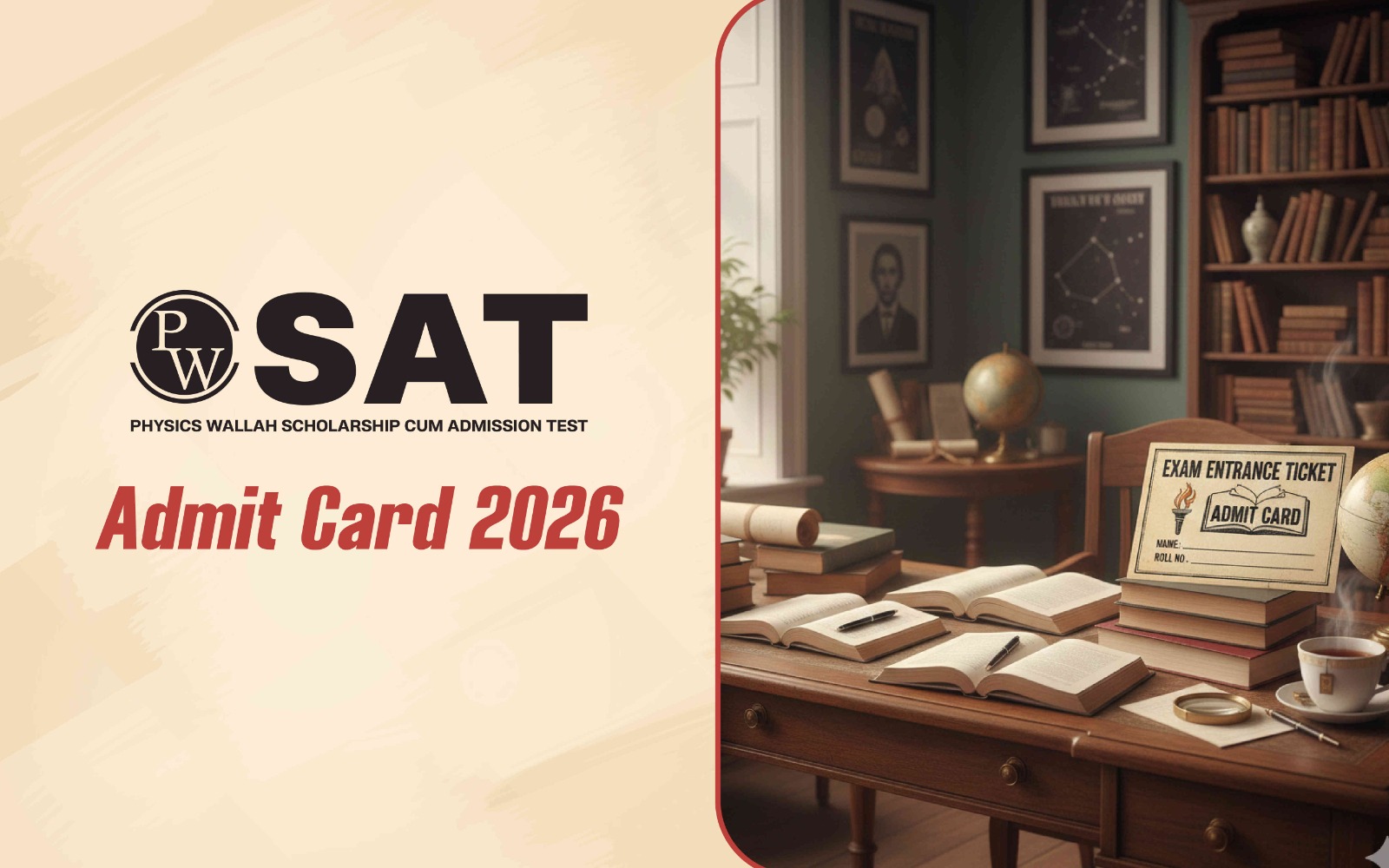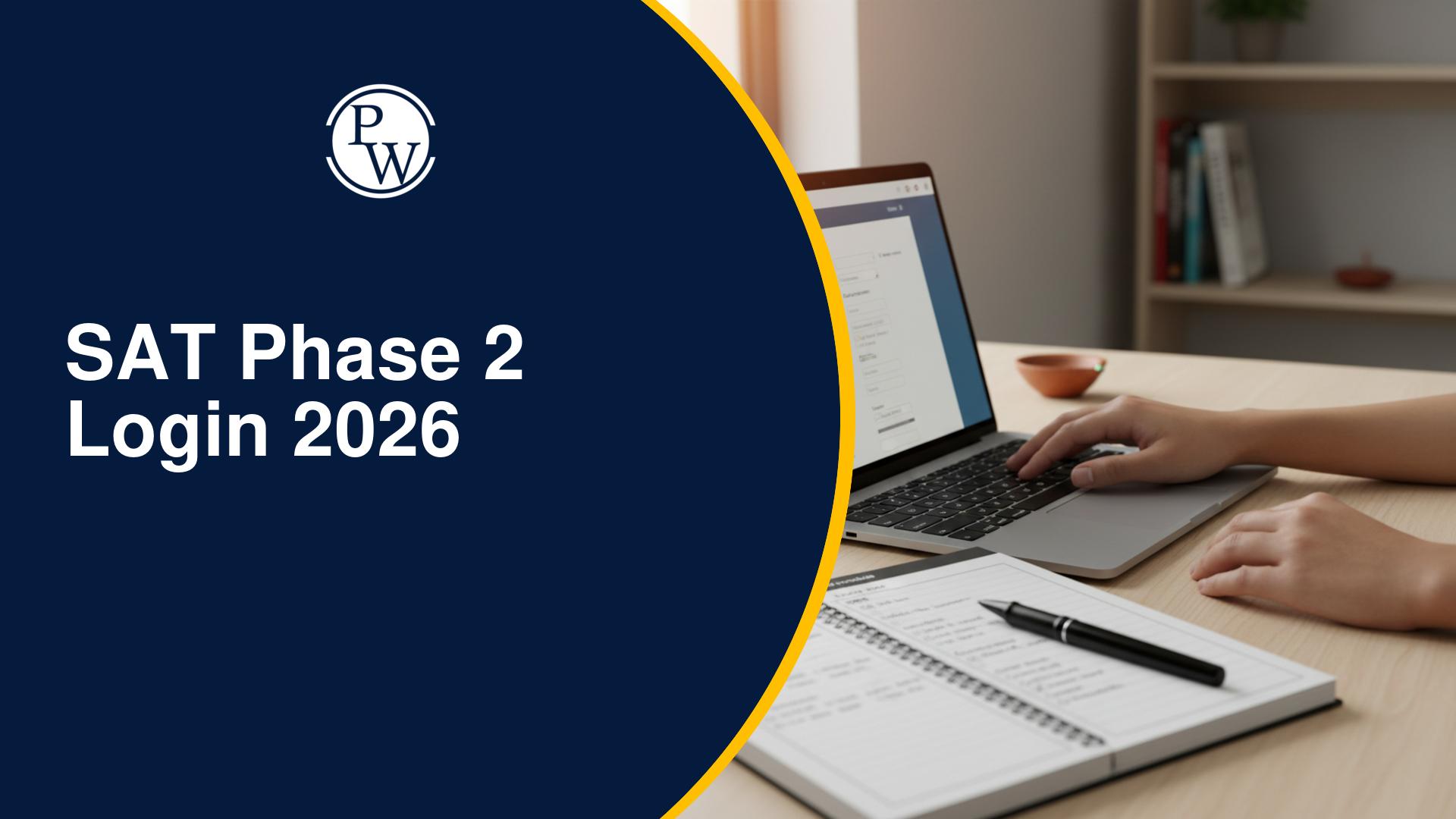
NEET study tips are essential for late starters who have just started their preparation for NEET 2024. The National Eligibility cum Entrance Test (NEET) is the only gateway to get into prestigious medical colleges in the country. The exam is conducted once a year by NTA and therefore is highly competitive and demanding. Lakhs of aspirants aiming for the NEET medical career are preparing for months and years to qualify for this exam.
However, if you have just started your NEET 2024 preparation but equally dream of clearing this exam, look no further as this article has exclusive NEET study tips for late starters to boost preparation.
At Physics Wallah, experts believe that the NEET journey may be difficult for late starters, but it's not impossible.
NEET Study Tips - Start From Syllabus
NEET study tips suggest students start their preparation by going through the NEET exam pattern and syllabus to understand its requirements. You can download the syllabus from the official website of NTA. After downloading the NEET Syllabus jot down familiar topics studied so far in class 11th and 12th.
The NEET question paper is based on up to 12th-level NCERT concepts of physics, chemistry, and biology. Many of these topics must have already been studied by you and now you just need to revisit them per the NEET exam requirement.
Make a list of difficult and easy topics and target to give dedicated time to revising easy topics and clearing doubts about complex topics of NEET. Also, pay attention to the marks weightage assigned to each subject in NEET to prioritize high-scoring areas.
NEET Study Tips - Select Study Material
Finalize the study material according to the limited time available to you. This effectively means that selecting the minimum number of books and doing maximum revision from these books. NEET study tips often highlight the NCERTs as an essential part of study material.
This is because it has been observed that often direct questions were asked from NCERTs in the previous year's NEET papers. Seek guidance from experts and NEET top rankers to pick the best reference material to avoid wasting time on irrelevant or outdated books.
Students must be careful of using plenty of free online resources that could cost a lot of precious time. Follow the simple rule of one NCERT and one reference material to do quality revisions to strengthen fundamentals.
NEET Study Tips - Plan Study Schedule
A smartly planned study schedule is key to success in the NEET exam. Since time is limited with late starters for the NEET 2024 exam, effective time management becomes of utmost importance.
NEET study tips recommend aspirants organize limited time efficiently by making a daily, weekly, and monthly study routine. They must devote a minimum of 8 to 10 hours to studying for the NEET exam and allocate a dedicated slot to cover all three subjects holistically.
Keep in mind to focus quality of studying rather than the quantity of hours as retention is more important for exam day. The candidates must stick to their daily schedule and complete their target to cover the NEET syllabus while having ample revision time.
NEET Study Tips - Practice Regularly
NEET Success depends on accuracy and speed on the exam day for which practicing became essential. NEET study tips include practicing regularly with quality mock tests and previous year questions multiple times. NEET's previous year's papers must be at your fingertips to score well in this exam.
Giving mock tests and solving PYQ is important as it gives an understanding of the types of questions asked in NEET and prepares to face their difficulty level. Students can learn time management skills by practicing regularly and improving scores over time.
Further, the practice is best when done in the simulated exam conditions by enrolling in a quality NEET Mock test. Expert feedback post-mock results can significantly help you gauge your strengths and weaknesses to improve on speed and accuracy for the NEET.
NEET Study Tips - Focus on Important Topics
In the limited time available NEET study tips advise students to aim on the high-yield topics of the NEET exam. Solve the previous year's questions for analyzing recurring questions to make a list of recurring topics and mark the weightage assigned to these topics.
After this exercise, the student must focus on high-scoring topics while planning a study schedule or revision to boost the score in the limited time available. This will also save you some time for more practice and revision of the NEET syllabus.
You can make a dedicated study plan devoting more time to important topics and less time to relatively less asked topics. NEET exam syllabus may assign equal importance to all subjects but does have some favorite areas.
NEET Study Tips - Regular Revision
Regular revision holds the key to better recall on the stressful NEET exam day. The more you revise the better the possibility of recall in those crucial hours according to the NEET study tips by experts. They have recommended students dedicate sufficient time to revisions of previously covered topics.
Students can create short notes or flashcards on topics that they often forget such as formulas or organic chemistry concepts for better revision. By prioritizing topics that are difficult to remember students can have better recall of these topics on NEET exam day.
Revision is highly useful as it ensures that you have a solid grasp of the concept and build confidence for exam day. You may also revise by attempting a test and revisiting questions that you got wrong to boost your performance for NEET exam day.
NEET Study Tips Mistakes to Avoid
Physics Wallah experts have advised students to remain focused and dedicated to their NEET goal. They have suggested students avoid making any mistake that may cost them on the exam day. Toppers guided by them too agree on this point that NEET aspirants should be careful of making any single mistake if they are late starters as they have limited time and a vast syllabus to cover.
Here are mistakes to avoid for late starters during their NEET preparation:
- Procrastination in following the prepared study schedule and missing daily targets.
- Overloading of information through multiple study resources for the same topics.
- Ignoring NCERT textbooks while revising the fundamental concepts of NEET.
- Leaving any subject or considering it of less importance for the NEET exam.
- Studying without taking breaks or not taking good care of health.
- Practicing fewer mock tests or not analyzing performance in the test.
- Not solving previous year's questions and doing insufficient revision.
- Having lots of distractions during crucial study time for the NEET exam.
Time is running fast and therefore you must pull up your sleeves and toil hard to ace the NEET exam!
| Related Links | |
| NEET 2024 Crash Course With PW FASTRACK | NEET 2024 Roadmap: Know How to Prepare for NEET |
| A Glimpse into Toppers NEET Journey | 5 Reasons to Choose Kanpur Vidyapeeth for NEET |
NEET Study Tips FAQs
Can a late starter clear NEET 2024?
Which is the most important book for the NEET exam?
How many hours should a late starter study to clear the NEET exam?
How to plan the NEET preparation?









